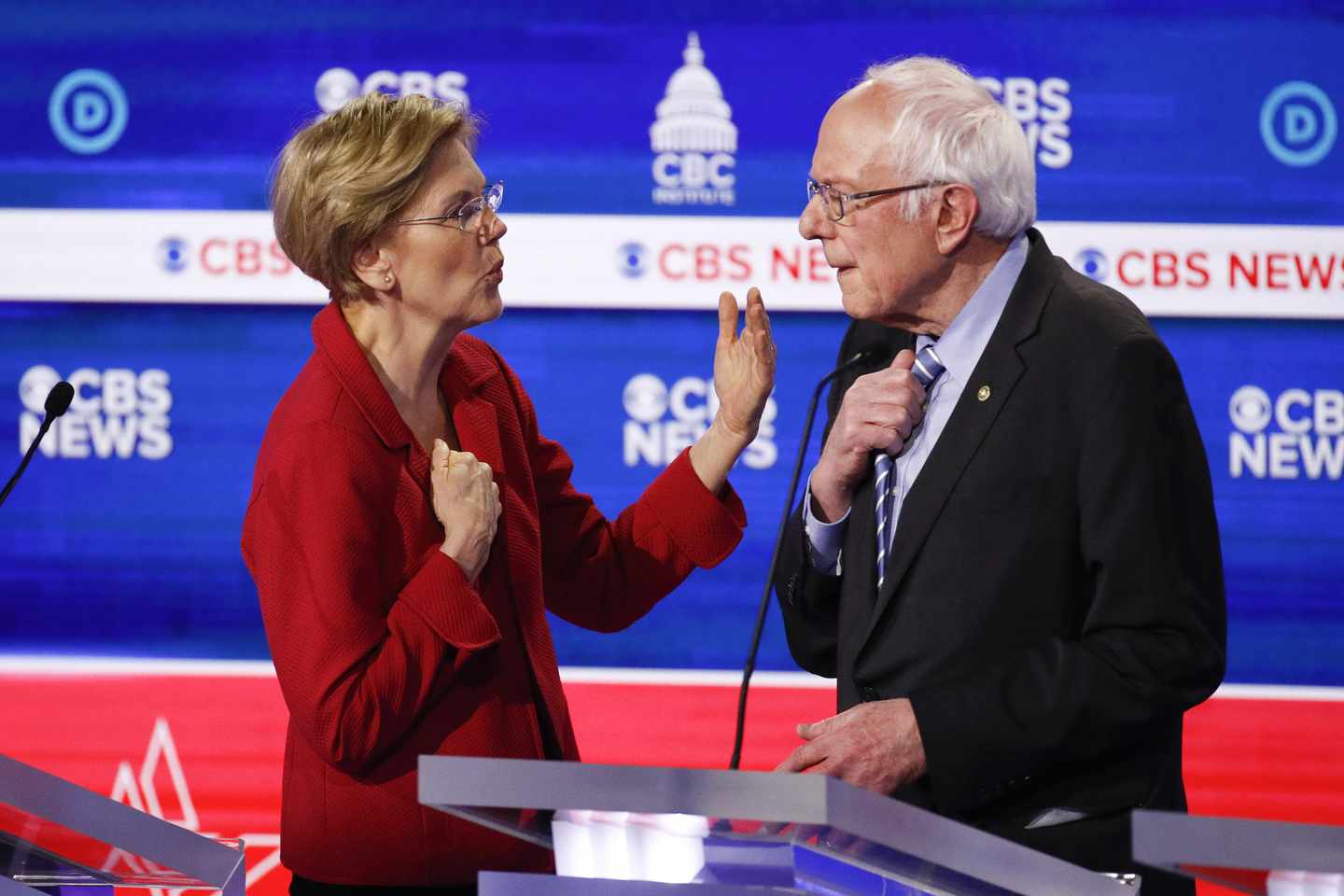Warren and Sanders Failed to Meet Their Own Standards
March 9, 2020#election2020 #BernieSanders #ElizabethWarren

Elizabeth Warren is out, Bernie Sanders appears to be on the ropes and Joe Biden just executed one the great political comebacks of all time. How did that happen? Because Biden met the standard he set for himself, while Warren and Sanders failed to meet theirs.
On Friday, several former Warren campaign aides vented to Politico about why they believe the campaign fizzled out. The excuses were all over the map. Too much promotion of Warren’s pet dog. Not enough money for TV ads. Too nice to her opponents. Too slow to release a health care plan.
Most of these miss the mark. People like dogs. Biden won Super Tuesday with barely any ads at all. Several candidates who went on the attack early also dropped out early.
That last one, about health care, is at least in the ballpark. But her problem with health care was not about timing, it was about her own standard of excellence. Warren built a persona of a superhuman policy machine, someone who could not only craft intricate white papers but also explain them with compelling rhetorical force.
Her mantra was “I have a plan for that.” However, after she asserted an unequivocal position in favor of single-payer health insurance, she initially flinched from producing a related white paper. Then, after taking a pounding for dodging questions about tax increases, she capitulated with two white papers but was unable to explain them convincingly. Her insistence that she didn’t need to raise taxes on the middle class was met with disbelief by moderate bean counters. And her proposal for an intermediate public option bill before tackling single-player in the third year of her presidency, prompted Sanders supporters to argue she was displaying half-hearted commitment.
In other words, she didn’t seem to have an airtight plan for a proposal to overhaul one-sixth of the American economy. And that shook confidence. That overhaul, via a massive government takeover of an industry sector, would surely attract ferocious attacks from President Trump as well as the health insurance lobby. Yet Warren was unable to convincingly defend her idea from Democratic critics, let alone Republican ones. No longer appearing to be superhuman, Warren and her poll numbers fell back to earth.
Sanders was never held to same standard as his fellow progressive when it came to policy details, because he never suggested the details were all that important. Several times he has been outright dismissive of reporters who ask him about the giant price tag on his agenda.
But if Sanders set a low standard in regard to policy detail, he has set a high standard for himself regarding youth turnout. His claim to electability rests on his supposed ability to attract massive numbers of young voters who otherwise would not show up to the polls.
However, even when winning the popular vote in the first three contests, no spike in youth turnout could be detected. Turnout only increased by 1 percent in the Iowa precincts he won. New Hampshire precincts that sided with Pete Buttigieg and Amy Klobuchar had bigger turnout increases than the precincts supporting Sanders. And in Nevada, the New York Times observed, “turnout fell well short of 2008 levels despite a decade of population growth and a new early-voting option that attracted some 75,000 voters.”
By the time the primary came to South Carolina, Sanders hadn’t proved he could deliver on the pledge that serves as the linchpin to his candidacy. If you are moderate voter who just wants to beat Trump, perhaps you might acquiesce to a Sanders nomination if he was leading an overwhelming turnout operation. Without such visible proof, you are less likely to take a chance on a self-avowed democratic socialist.
Meanwhile, Biden staked his entire campaign on the premise that he had an unshakable bond with African American voters, which would withstand his three-state losing streak. So when African Americans in South Carolina turned out for him in huge numbers, far outpacing what polls were predicting, Biden became the first candidate the meet a self-imposed standard of success.
Hitting his Palmetto State benchmark, and then some, is not the only reason Biden won the most delegates on Super Tuesday. The biggest reason is that the Democratic Party electorate tilts moderate (in part because of the African American vote), so once Buttigieg and Amy Klobuchar rallied around Biden, he was able to largely consolidate the moderate vote.
But to be able to consolidate your ideological lane in a crowded field, you need to instill confidence. Doing what you say you will do instills confidence. Once it was clear Buttigieg and Klobuchar could not accomplish what Biden could in African American communities, they stood down. No similar surrender happened on the left before Super Tuesday.
Warren and Sanders jockeyed throughout their campaigns to claim the progressive mantle. For a time last year, Warren had the edge, but once she fell short of her own standard, her support sank and Sanders got a second look. Then once Sanders’ rise looked less impressive upon closer examination of his vote totals, Warren saw no need to rush to the exits. But on Super Tuesday, unlike in Iowa, New Hampshire and Nevada, the left was more divided than the middle.
(Even if the left had consolidated around one candidate, however, the moderate faction still would have been bigger. At this writing, the combined popular vote share of Biden, Buttigieg, Klobuchar and Michael Bloomberg is 12 percentage points higher than that of Sanders and Warren.)
Running for president is hard. To win, you often have to convince voters there’s something you can do that no one else can do. But the lesson of 2020 is: Before making any claim of unique ability that will help in the general election, you better make sure you can actually do it.
Source: https://www.realclearpolitics.com/

